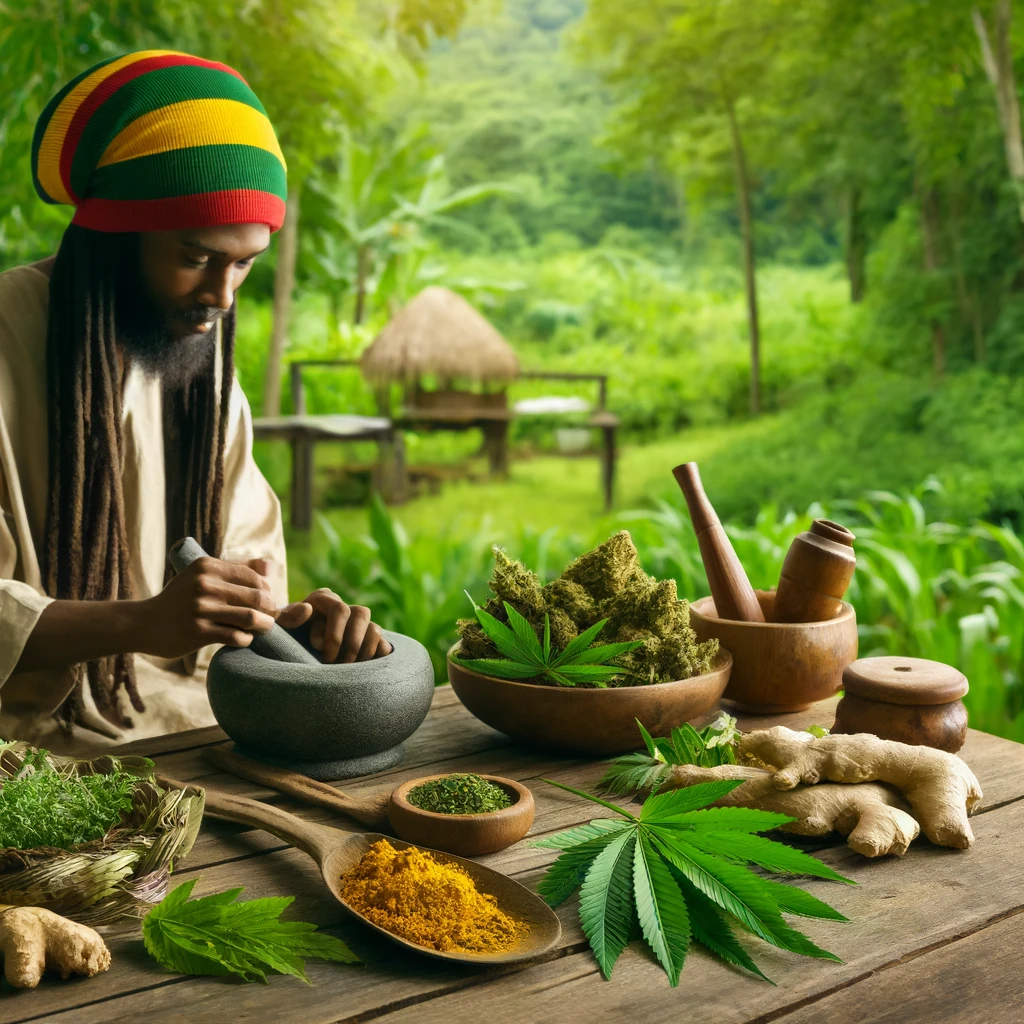Herbal medicine is a cornerstone of Rastafari culture, reflecting a deep connection with nature and a preference for natural remedies over synthetic medicines. This blog post explores the significance of herbs in Rasta practices and their holistic approach to health and well-being.
1. Natural Healing and Spirituality
For Rastafarians, the use of herbal medicine is not just about treating ailments but is deeply intertwined with their spiritual life. Herbs are considered gifts from Jah (God), provided to maintain the body’s temple and to heal both physically and spiritually. This perspective aligns with the Rasta principle of “I-tal is vital,” which emphasizes natural living as a pathway to higher spiritual consciousness.
2. Ganja: The Sacred Herb
Cannabis, or ganja, holds a special place in Rastafari tradition. It is used sacramentally in Rasta rituals known as ‘Reasoning sessions’ where it is smoked to facilitate meditation, enhance spiritual awareness, and foster community discussions about life, spirituality, and the struggles faced by the community. This sacramental use of ganja highlights its importance not as a recreational drug but as a means to spiritual enlightenment and community bonding.
3. Herbal Remedies and Traditional Knowledge
Beyond ganja, the Rastafari utilize a wide range of herbs for health and healing, drawing on traditional knowledge passed down through generations. Common herbs like moringa, turmeric, and ginger are staples in Rasta herbal medicine, used to treat everything from colds and inflammation to boosting overall vitality. This knowledge of herbal remedies is a key aspect of Rastafari’s self-sufficiency and resistance to mainstream medical systems, which they often view as corrupt and ineffective.
4. Education and Preservation of Herbal Knowledge
In Rastafari communities, there is a strong emphasis on educating younger generations about the benefits of herbal medicine, ensuring this wisdom is preserved and passed on. Workshops, herbal walks, and healing sessions are common, where elders share their knowledge with the youth, reinforcing the community’s connection to nature and their cultural heritage.
Closing Thoughts
Herbal medicine in Rastafari culture represents a profound connection to the Earth and a holistic approach to life. It underscores a broader commitment to living naturally, sustainably, and spiritually, offering insights not only into the healing properties of plants but also into a way of life that celebrates and respects the natural world.
Feel the healing power of nature and carry forward the wisdom of the ancients. One love!

